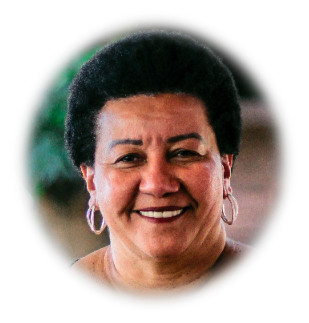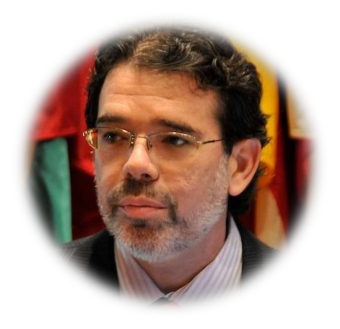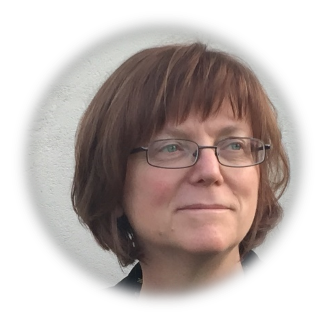Programme
The Symposium will explore the tools and methods needed to support the translation of qualitative evidence into policy and practice, and will examine ways of strengthening capacity in this area, particularly in the global South. The Symposium also will provide opportunities to share with a multisectoral community your experiences and ideas on using qualitative evidence to support decision making.
| Day 0 (8th October) | Room | |
| 0900-1030 | Training workshop 1 (part 1) Title: Undertaking a qualitative evidence synthesis: What, Why and How (English) Facilitators: Natalie Leon, Chris Colvin, Ruth Garside | Classroom 2 (main) Classroom 4 (breakout) |
Training workshop 2 Title: Produção de narrativas pessoais de adoecimento como evidências qualitativas na pesquisa, formação e educação permanente, e cuidado em Saúde (Portuguese) Facilitators: Octavio Domont de Serpa, Alicia Navarro de Souza, Antonio Python | Classroom 1 (main) Classroom 7 (breakout) | |
| Training workshop 3 Title: Qualitative evidence in impact assessments (English) – closed session for Brazilian MoH only Facilitators: Douglas Glandon, Anca Dumitrescu | Classroom 3 (main) Classroom 6 (breakout) | |
| 1030–1100 | Coffee break | |
| 1100-1300 | Workshops continued | |
| 1300-1400 | Lunch – Please note that lunch and refreshments will not be provided at the Symposium venue on 8 October. Participants will be given information on the day regarding nearby options for lunch or coffee | |
| 1400-1530 | Training workshop 1 (part 2) Title: Undertaking a qualitative evidence synthesis: What, Why and How (English) Facilitators: Natalie Leon, Chris Colvin, Ruth Garside | Classroom 2 (main) Classroom 4 (breakout) |
Training workshop 4 Title: Interrogar as estruturas interpretativas usadas no desenho e relato de pesquisas qualitativas e no uso de evidências para políticas e práticas (Portuguese) Facilitators: Muna Muhammad Odeh, Marta Giane Machado Torres, Kátia Cesa, | Classroom 1 (main) Classroom 7 (breakout) | |
Training workshop 5 Title: “Software does not analyse qualitative data – researchers do”: Qualitative Research in multisite settings without using any software (English) Facilitator: Aruna Bhattacharya Chakravarty | Classroom 3 (main) Classroom 6 (breakout) | |
Deliberative dialogue on Health Policy Title: Strategies for Implementation of National Guidelines on Assistance for Normal Birth (Portuguese) Facilitator: Jorge Barreto, Maritsa Bortoli | Classroom 5 | |
| 1530-1600 | Coffee break | |
| 1600-1730 | Workshops continued | |
| Day 1 (9th October 2019) | Room | |
| 0900-1030 | Welcome of participants to the Symposium Opening plenary: Setting the scene – qualitative evidence and the UN Sustainable Development Goals (SDGs) Chairs: Jorge Barreto, Claire Glenton Speakers: Paulo Buss, Ruth Garside, Evelina Chapman, Valcléia Soledade | Main auditorium |
| 1030–1100 | Coffee break | Outdoor meeting area |
| 1100-1300 | Parallel session 1 Title: Tools and methods for incorporating qualitative evidence in decisions Chair: Mariana Santos and Meghan Bohren Presenters:
| Main auditorium |
Training workshop 6 Title: Contextual and institutional factors affecting evidence use in public agencies (English) Facilitator: Kirchuffs Atengble | Classroom 3 | |
| Training workshop 7 (part 1) Title: Advocacy para a Agenda 2030 de Desenvolvimento Sustentável (Portuguese) Facilitators: Laura Cury, Ticiana Imbrosio | Classroom 1 | |
Training workshop 8 Title: Introduction to qualitative evidence synthesis (English) Facilitators: Natalie Leon, Chris Colvin, Ruth Garside | Classroom 2 | |
| 1300-1400 | Lunch | Outdoor meeting area |
| Medical Humanities Shorts: South AfricaShort Films by Leanne Brady | Classroom 4 | |
| 1400-1530 | Parallel session 2 Title: “Same Same But Different”: the intersecting worlds of theory, arts and practice Chair: Sharmila Sousa Presenters: Fernanda Severo, Trisha Bester, Rita Dayoub | Classroom 1 |
Parallel session 3 Title: Building bridges between different elements and actors in the evidence ecosystem Chair: Kingsley Pereko Presenters:
| Small auditorium | |
Parallel session 4 Title: Alliance for Health Policy and Systems Research Policymaker roundtable: strengthening institutional capacity to demand, produce and use qualitative evidence Chairs: Velia Manyonga, Simon Lewin Panellists: Evelina Chapman, Peninah Khisa, Tamara Lotfi, Velia Manyonga, Fabu Moses, Ministry of Health of Brazil (to be confirmed) | Main auditorium | |
| 1530-1600 | Coffee break | Outdoor meeting area |
| 1600-1730 | Training workshop 9 Title: Using story-telling in armed conflicts to influence humanitarian policies (English) Facilitator: Rita Dayoub | Classroom 2 |
Training workshop 10 Title: Analysis for free: using commonly and freely available software for qualitative analysis (English) Facilitators: Ravi Ram, Peninah Khisa, Kingsley Pereko, Linda Shuro | Classroom 3 | |
| Training workshop 7 (part 2) Title Advocacy para a Agenda 2030 de Desenvolvimento Sustentável (Portuguese) Facilitators: Laura Cury, Ticiana Imbrosio | Classroom 1 | |
| Open Space | Classroom 5 Classroom 7 | |
| Day 2 (10th October 2019) | Room | ||
| 0900-1030 | Plenary: Humanising policies and programmes – the roles of qualitative evidence Chair: John Lavis Speakers: Walter Flores, Velia Manyonga, Fernanda Sobral | Main auditorium | |
| 1030–1100 | Coffee break | Outdoor meeting area | |
| Medical Humanities Exhibition Tour: “Morar em Liberdade” – Retratos da Reforma Psiquiátrica no Brasil [“Living in Freedom – Portraits of the Psychiatric Reform in Brazil”] – 30 min guided by Adélia Benetti de Paula Capistrano, Fernanda Maria Duarte Severo, June Correa Borges Scafuto, Yuri Javier Dias Aires Prado (guides to be confirmed ) | Meet at the bench in front of the Fiocruz ‘Coffee and Science’ shop | ||
| 1100-1300 | Parallel session 5 Title: Bridging qualitative data and decision making in human rights Chair: Laura Boeira Presenters: Angelo Brandelli Costa, Carolina Ramirez, Caroline Reis (to be confirmed), Thais Duarte | Classroom 2 | |
Parallel session 6 Title: Qualitative evidence and infectious diseases of poverty [session facilitated by the WHO Special Programme for Research and Training in Tropical Diseases (TDR)] Chair: Garry Aslanyan Presenters:
| Classroom 8 | ||
Parallel session 7 Title: How can qualitative evidence strengthen evidence-informed policy making? Chair: Daniela Rego Presenters: Guilherme Franco Netto, Ludovic Reveiz, John Lavis, Camile Sachetti | Main auditorium | ||
Training workshop 11 Title: How to apply GRADE-CERQual to findings from qualitative evidence syntheses Facilitators: Meghan Bohren, Chris Colvin, Ruth Garside | Classroom 3 | ||
Training workshop 12 Title: Reaffirming indigenous knowledge in the SDGs Facilitators: Stephanie Montesanti, Chyloe Healy, William Wadsworth | Classroom 6 | ||
| 1300-1400 | Lunch | Outdoor meeting area | |
| Medical Humanities Shorts: Brazil (external auditorium) – Short films from the “Morar em Liberdade” – Retratos da Reforma Psiquiátrica no Brasil [“Living in Freedom – Portraits of the Psychiatric Reform in Brazil”] – project (selection by Fernanda Severo & Team) | Classroom 4 | ||
| 1400-1530 | Parallel session 8 Title: Narratives and counter-narratives on health policy making in Africa: value of citizens’ voices through qualitative discourse Chair: Ravi M Ram Presenters: Ravi M Ram, Peninah Khisa, Linda Shuro, Kingsley Pereko | Classroom 6 | |
Parallel session 9 Title: Case studies of using qualitative methods to inform decision making – session 1 Chair: Evelina Chapman Presenters:
| Classroom 8 | ||
Parallel session 10 Title: Using qualitative evidence in impact evaluation Chair: Douglas Glandon Presenters: Douglas Glandon, Anca Dumitrescu | Main auditorium | ||
| Open space | Classroom 4 Classroom 5 Classroom 7 | ||
| 1530-1600 | Coffee break | Outdoor meeting area | |
| Medical Humanities Exhibition Tour: “Morar em Liberdade” – Retratos da Reforma Psiquiátrica no Brasil [“Living in Freedom – Portraits of the Psychiatric Reform in Brazil”] – 30 min guided by Adélia Benetti de Paula Capistrano, Fernanda Maria Duarte Severo, June Correa Borges Scafuto, Yuri Javier Dias Aires Prado (guides to be confirmed ) | Meet at the bench in front of the Fiocruz ‘Coffee and Science’ shop | ||
| 1600-1730 | Parallel session 11 Title: Looking for a multidisciplinary virtuous circle in health care policy implementation in Latin America and the Caribbean Chair: Dan Maceira Presenters: Cristián Mansilla, Irene Rodríguez Salas, Emily Vargas Riaño, Fabu Moses | Classroom 6 | |
Parallel session 12 Title: Qualitative evidence and the SDGs: conceptual approaches Chair: Patrick Mbah Okwen Presenters:
| Classroom 8 | ||
Parallel session 13 [1530-1600] Title: Strengthening capacity for producing and using qualitative evidence for the SDGs Chair: Luciana Leão Presenters:
| Classroom 1 | ||
Parallel session 14 [1600-1700] Title: Citizens, citizen science and qualitative evidence Chair: Luciana Leão Presenters:
| Classroom 1 | ||
Training workshop 13 Title: Using qualitative evidence to inform implementation considerations and equity considerations for interventions and programmes Facilitators: Soo Downe, Simon Lewin, Claire Glenton | Classroom 2 | ||
Training workshop 14 Title: Using qualitative evidence to inform and build on citizen panels and dialogues and other engagement mechanisms Facilitators: John Lavis, Kaelan Moat, Harsha Dayal, Laurenz Langer, Jorge Barreto | Small auditorium | ||
| Day 3 (11th October 2019) | Room | ||
| 0900-1030 | Plenary: Moving forward – strengthening collaborations and capacity for robust and relevant qualitative evidence Chair: Soo Downe Speakers: Laurenz Langer, Harsha Dayal, Theresa Jones, Gabriela Di Giulio | Main auditorium | |
| 1030–1100 | Coffee break | Outdoor meeting area | |
| Medical Humanities Exhibition Tour: “Morar em Liberdade” – Retratos da Reforma Psiquiátrica no Brasil [“Living in Freedom – Portraits of the Psychiatric Reform in Brazil”] – 30 min guided by Adélia Benetti de Paula Capistrano, Fernanda Maria Duarte Severo, June Correa Borges Scafuto, Yuri Javier Dias Aires Prado (guides to be confirmed) | Meet at the bench in front of the Fiocruz ‘Coffee and Science’ shop | ||
| 1100-1300 | Parallel session 15 Title: A glocal perspective on the SDGs: perceptions from local groups and populations Chair: Ulysses Panisset Presenters: Everardo Aguiar, Marta Giane Machado Torres, Richarlls Martins, Stephani | Main auditorium | |
Parallel session 16 Title: From Digital Health to the SDGs: bridging development and implementation with qualitative evidence Chair: Sharmila Sousa Presenters: Simon Lewin, Claire Glenton, Atila Rodrigues, Edson Amaro | Classroom 3 | ||
Parallel session 17 Title: Methods for producing, synthesising and using qualitative evidence Chair: Rita Dayoub Presenters:
| Classroom 6 | ||
Training workshop 15 Title: Using 3D Qualitative Geospatial Data for Decision Making Facilitators: Patrick Mbah Okwen, Nain Yuh Mirabel, Euphrasia Ebai-Etu Ndi | Classroom 1 | ||
Training workshop 16 Title: Involving policy makers in framing policy/research Facilitator: Sudhakar Morankar | Classroom 2 | ||
| 1300-1400 | Lunch | Outdoor meeting area | |
| Journal special issue and book launches: Launch of special issue of the Health Institute Bulletin (BIS) on ‘Synthesis of Qualitative Evidence’ and of Portuguese translation of the GRADE-CERQual paper series | Outdoor meeting area | ||
| Medical Humanities Voices: Syria – Engage with the voices from ‘Health Workers at Frontline’ by Rita Dayoub (computer room, level 1) | Computer lab | ||
| 1400-1530 | Open space | Classroom 4 Classroom 5 Classroom 7 | |
Parallel session 18 Title: Embedding co-production in evidence synthesis for decision-making Chairs: Sharmila Sousa Presenters: Harsha Dayal, Laurenz Langer, Nilcéia Lopes | Classroom 6 | ||
Parallel session 19 Title: Case studies of using qualitative methods to inform decision making – session 2 Chair: Aruna Bhattacharya Chakravarty Presenters:
| Main auditorium | ||
| 1530-1600 | Coffee break | Outdoor meeting area | |
| Medical Humanities Exhibition Tour: “Morar em Liberdade” – Retratos da Reforma Psiquiátrica no Brasil [“Living in Freedom – Portraits of the Psychiatric Reform in Brazil”] – 30 min guided by Adélia Benetti de Paula Capistrano, Fernanda Maria Duarte Severo, June Correa Borges Scafuto, Yuri Javier Dias Aires Prado ( guides to be confirmed ) | Meet at the bench in front of the Fiocruz ‘Coffee and Science’ shop | ||
| 1600-1730 | Symposium closing session: Next steps Chair: Sharmila Sousa | Main auditorium | |
Please note that all posters will be displayed across all of the days of the Symposium | |
| Presenter |
| Health Impact Assessment in the city as a tool to achieve the Sustainable Development Goals | Ana Schramm |
| National stakeholders’ perceptions and experiences of the role, generation and use of evidence in clinical practice guideline development in South Africa | Bey-Marrie Schmidt |
| Primary care clinical practice guidelines in South Africa: qualitative study exploring perspectives of national guideline developers | Bey-Marrie Schmidt |
| Social determinants of health in obesity prevention: A qualitative approach | Carolina Santamaría-Ulloa |
| Reducing Cesarean Section Rates in Brazil: Contributions from a Deliberative Dialogue | Cintia Oliveira |
| Policy Makers and Decision Making Process regarding SDGs | Debora Mello e Souza |
| Motivations, thoughts, and feelings associated with the suicidal ideation among Brazilian adolescents: qualitative evidence synthesis | Débora Nascimento |
| Understanding social inequalities in nursing education: challenges to achieve sustainable development goals. | Elen Gandra |
| Implementation of training programs as a strategy for the introduction of sustainability | Ilka Vercellino |
| Access to surgery in rural Africa – lessons for policymaking from the Medical Licentiate programme in Zambia | Jakub Gajewski |
| Community Action for Health – A book that retrieves stories of community mobilization for health in Porto Alegre, Brazil | Kátia Cesa |
| Using qualitative evidence to support guidance and guideline development for Science, Technology and Innovation Systems | Manir Kamba |
| Experiences and shared meaning of teamwork and interprofessional collaboration among health care professionals in primary health care settings | Mariana Schveitzer |
| Qualitative evidence and governance of protected areas: the participatory process for management plan of the Reserva Experimental Horco Molle (REHM) | Matteo Tarquini |
| Synthesizing qualitative research evidence from complex interventions by inductive thematic content analysis using modified in-vivo coding | Olujide Arije |
| The experience of tooth loss: systematic review and meta-synthesis | Patricia Reis |
| Using 3D Qualitative Geospatial Data for Decision Making in for Maternal and Child Health Through performance Based Financing in Cameroon | Patrick Okwen |
| Qualitative evidence on Gender inequality from women’s perspectives in Africa; a model, rights-based methodology | Peninah Khisa |
| Access to water and sanitation by urban and rural groups living in vulnerable situations | Priscila Neves |
| Domestic violence and social norms: attitudes and practices of criminal justice and health workers in Norway and Brazil | Raquel Miranda |
| Community Health Workers feelings on Digital Health | Renata David |
| Overcoming challenges in working across sectors for improving child health: What qualitative evidence can tell us | Sudha Ramani |
| Social desirability bias in qualitative research: What is it and what can researchers do about it? | Sudhakar Morankar |
| Development of Strategies for a Pharmaceutical Company: A Study Case | Wenderson Andrade |
Plenary sessions overview
All Plenary Sessions will be webcast as part of the Virtual Symposium
Day 1 Plenary session: Setting the scene – qualitative evidence and the UN Sustainable Development Goals (SDGs)
9 October 2019
What is qualitative evidence and how can it support decisions relevant to the SDGs? This plenary session will explore these questions, starting with an introduction to current debates regarding the SDGs and then addressing where qualitative evidence fits in and how it can contribute. This plenary session will also consider the ways in which qualitative evidence be used to humanise policies, inform decisions and improve equity and whether we need to prioritise qualitative evidence more within the evidence ecosystem for the SDGs. The session will conclude with an input on how citizens can use, and contribute to gathering, qualitative evidence as part of advocating for change.

Paulo Buss
Dr. Paulo Buss previously served as president of the Oswaldo Cruz Foundation, known as Fiocruz, attached to the Brazilian Ministry of Health and the most prominent science and technology health institution in Latin America. He serves as an expert advisor to the Pan American Health Organization. Since the early 1980s, Dr. Buss has been a key figure in Brazil's rapid improvements in public health. He has since broadened his focus, with one of his roles being a founding member of the International Association of National Public Health Institutes’ (IANPHI) executive board, where he served from 2006-2009. Buss has written three books and more than 80 technical-scientific articles for scientific journals in Brazil and abroad. He has been granted the Medical Merit Honour, the highest health award in Brazil, and the Ordem do Rio Branco, both conferred by the president of the Republic.

Evelina Chapman
Dr. Evelina Chapman is an Argentinian senior researcher and former high-level policymaker with extensive experience in knowledge translation processes. Evelina has a background in Medicine and Paediatrics as well as a Masters in Clinical Epidemiology and Ph.D. in Public Health. She was a Pan-American Health Organization-World Health Organization (PAHO-WHO) research consultant for 6 years until 2016, working as the Regional Coordinator of the Evidence-Informed Policy Network (EVIPNet). She helped to formulate relevant policies in different countries and scenarios and to build capacities through more than 30 face-to-face workshops. As Vice-Ministry of Health in Buenos Aires until 2017 she implemented a pilot model of rapid responses mechanisms using evidences for decision-making, facilitating the management and the formulation of public policies, programs and laws for health. In June 2019 she joined WHO’s Regional Office for Europe as Technical Officer for EVIPNet.

Ruth Garside
Dr. Ruth Garside is a social science researcher specialising in systematic review and evidence synthesis. She has over 15 years’ experience using quantitative and qualitative research methods to investigate a range of health and social care questions. Ruth’s work has informed UK policy customers including the National Institute for Health and Clinical Excellence (NICE) and the Home Office. She is particularly interested in using a broad range of evidence to investigate complex issues and have a particular interest in methods of evidence synthesis for qualitative research. Ruth’s role at the European Centre for Environment and Human Health (University of Exeter Medical School, UK) is to coordinate evidence synthesis projects and to help develop these methods in the context of the interconnections between the environment and human health. I am part of the UK Centre for Collaboration for Environmental Evidence, and a co-convenor of the Cochrane Qualitative and Implementation Methods group.

Valcléia Solidade
Valcléia Solidade is the current community development superintendent of the Amazonas Sustainable Foundation (FAS). She has a degree in Public Management and a specialization in Innovation and Technological Dissemination. He has more than 20 years of experience in social and environmental projects, with recognized performance in the Saúde Alegria Project, in Pará, and in the coordination of the Bolsa Floresta Program (PBF), implemented by FAS in Amazonas. During this period, he held social mobilization and participatory processes, project planning and management in the areas of social empowerment, community infrastructure and support for income generation.

Jorge Barreto (Chair)
Jorge Barreto, PhD, is a researcher at the Oswaldo Cruz Foundation (Fiocruz), focusing on Evidence-informed Policy-making (EIPM) and Health Systems Research (HSR). He has more than 15 years management and research experience in HSR and EIPM fields and implemented the first EVIPNet Brazil workgroup at local level. He was the Special Secretary for Science and Technology of the National Council of Municipal Health Secretaries of Brazil and led the Knowledge Management for Science and Technology coordination and the EVIPNet Brazil at the Brazilian Ministry of Health. Today he participates in several projects related to knowledge translation platforms to make the decision making process more transparent, systematic and balanced.
Day 2 Plenary session: Humanising policies and programmes – the roles of qualitative evidence
10 October 2019
How programmes and policies can be made more acceptable, feasible, equitable and sustainable through the wider use of qualitative evidence? This plenary session, to be organised as a panel discussion, will consider this question and explore issues such as:
- how government agencies and others can identify the need for qualitative evidence in their SDG policy design, implementation and evaluation cycles
- how policy users, including citizens, can quickly locate relevant qualitative evidence
- how qualitative evidence can help design programmes and policies that are more acceptable, feasible, equitable and sustainable, and
- how qualitative evidence can help represent the voices of service users and civil society, including vulnerable groups, in decision making for the SDGs. How can citizens be supported to be active participants seeking and using qualitative evidence?

Walter Flores
Dr. Walter Flores is a social scientist and human rights advocate with over 25 years of professional experience. He holds a PhD and a Masters of Community Health from the Liverpool School of Tropical Medicine, UK. Dr. Flores’ professional work has been carried-out in more than 30 countries from Latin America, Africa, Asia and Europe. His areas of expertise are health systems and policy, right to health and indigenous populations, democratic governance, social accountability, legal empowerment and community participation. Currently, Dr Flores is the executive director of the Center for the Study of Equity and Governance in Health Systems, a Guatemalan civil society organization specialized in applied research, capacity building and advocacy around issues affecting indigenous and other marginalized populations.

Velia Manyonga
Velia Manyonga is a social scientist working for Parliament of Malawi as Head of Research, Library and Civic Education Division. Ms. Manyonga holds a Master of Public Health from University of Malawi College of Medicine. She is currently studying for her second Master’s Degree in Gender and Development. Her work with Parliament of Malawi involves accessing, synthesizing, and helping for Members of Parliament to apply evidence in their decision making roles. Specifically, Ms. Manyonga is responsible for generating knowledge through research to help members of parliament to make evidence informed decisions about legislations, policies, programs and practices. As an evidence broker, Ms. Manyonga advocates for exchange of information between the Members of Parliament and experts from the government ministries, Civil Society and constituents. To champion evidence- informed decision making, Ms. Manyonga is currently engaged in activities to increase demand for evidence use among the newly elected members of Malawi parliament.

Fernanda Sobral
Fernanda Sobral is retired Professor and Senior Collaborator of the Graduate Program in Sociology (UnB). She holds a PhD in Sociology and a postdoctoral degree in Paris at the École des Hautes Études en Sciences Sociales. She was an invited professor at the University of Quebec, Montreal. She was a visiting researcher at the Center for Management and Strategic Studies (CGEE) (2009 to 2011). She was executive secretary of the Brazilian Society of Sociology (SBS) (1996-1997), member of the Advisory Committee on Social Sciences at CNPq (1998-2000), of the Superior Council of the Research Support Foundation (FAP-DF) (2007-2010). , 2015 to 2018) and advisor to the Brazilian Society for the Progress of Science (SBPC) (2005 and 2007, 2017 to 2019). She was research director at UnB (2016). Has research and publications on the following subjects: education, technology, science, university and research. He is currently vice president of the Brazilian Society for the Progress of Science.

John Lavis (Chair)
Dr. John Lavis holds the Canada Research Chair in Evidence-Informed Health Systems. He is the Director of the McMaster Health Forum | Forum+, Co-Lead of Rapid-Improvement Support and Exchange (RISE), Co-Director of the WHO Collaborating Centre for Evidence-Informed Policy, Professor in the Department of Health Evidence and Impact at McMaster University, and Adjunct Professor in the Africa Centre for Evidence at the University of Johannesburg. John supports policymakers and stakeholders to harness research evidence, citizen values and stakeholder insights to strengthen health and social systems and get the right programs, services and products to the people who need them. He co-chairs the Global Steering Group for Evidence-Informed Policy Network (EVIPNet) and chairs the Partner Executive Group for Partners for Evidence-driven Rapid Learning in Social Systems (PERLSS). He holds an MD from Queen's University, an MSc from the London School of Economics, and a PhD (in Health Policy) from Harvard University.
Day 3 Plenary session: Moving forward – strengthening collaborations and capacity for robust and relevant qualitative evidence
11 October 2019
This plenary session will discuss ways of strengthening collaborations and capacity across sectors, geographies and disciplines to produce robust and relevant qualitative evidence. Speakers will consider how to build cross-sectoral partnerships to produce qualitative evidence for SDG questions and strengthen the qualitative evidence ecosystem. They will also discuss ways of using qualitative evidence to prepare for future global challenges such as climate change.

Harsha Dayal
Harsha Dayal currently works as the Director of Research in the Department of Planning Monitoring and Evaluation within the Presidency of South Africa. Research experience in poverty, public health, gender and disability studies gained during her employment at the Human Sciences Research Council from 2007 to 2014 has provided her with the necessary experience and skills in bridging researchers and policy makers towards critical national priorities grounded in the Social Sciences. She has a Master’s degree in Public Health and is a qualified Occupational Therapist serving the public health sector from 1993 to 2007. She is championing evidence synthesis as a methodology for building public sector capacity, has facilitated effective use of research and other evidence, and is developing a responsive knowledge-brokering service to meet the demand for quality evidence by decision makers. She strives towards bringing together the two worlds of research and policy in transforming society and pursuing developmental objectives.

Laurenz Langer
Dr. Laurenz Langer is a Senior Researcher at the University of Johannesburg’s Africa Centre for Evidence (ACE), specialising in evidence synthesis and its use to inform decision-making. Laurenz leads ACE’s work in supporting national government decision-makers to integrate evidence from evidence synthesis (e.g. evidence maps, systematic reviews, meta-analyses) in the formulation and design of public policies and programmes. Laurenz has conducted a range of systematic reviews and evidence maps, including reviews published by the Campbell Collaboration and the Collaboration for Environmental Evidence. He is the lead author of the Science of Using Science Report, an UCL EPPI-Centre systematic review of what works to increase evidence use and serves as an Associate Editor at the Campbell Collaboration. Laurenz holds a PhD from the University College London and a BA degree in Development Studies from the University of Johannesburg. His research interests include evidence synthesis, decision-making in the public sector, and behavioural economics and social network analysis to support policy implementation.

Theresa Jones
Theresa Jones is a Senior Associate with Anthrologica, a leading research-based organisation specialising in applied anthropology in global health (www.anthrologica.com). Anthrologica’s specific expertise focuses on the interface between the provision and uptake of health services in resource-constrained settings, and in the pre-positioning and application of social science intelligence in emergency and humanitarian contexts. Theresa holds a doctorate in Clinical Psychology from the University of Hull and has extensive experience designing, and managing complex qualitative, participatory research and evaluations. Prior to joining Anthrologica, Theresa was a mental health specialist and psychosocial lead for the International Rescue Committee and Médecins Sans Frontières working in Palestine, Kenya, Uganda, Liberia and, most recently, in Afghanistan. She now leads Anthrologica’s mental health and psychosocial support unit and applies a psycho-social lens across Anthrologica’s whole portfolio, including emergency response and preparedness work. Anthrologica is a founding partner of the Social Science in Humanitarian Action Platform, and is leading the Platform’s support of the response to Ebola in DRC and preparedness activities in the neighbouring high priority countries. As part of this initiative, Theresa is currently developing training curricula for social scientists who will deployed to emergencies. She has authored journal articles, book chapters and technical programmatic manuals, and frequently represents Anthrologica at international conferences.

Gabriela di Giulio
Gabriela Di Giulio is Assistant Professor at University of São Paulo (USP), Brazil. She holds a PhD in Environment and Society (University of Campinas, UNICAMP). Her current research programme focuses on human dimensions of climate and environmental hange, including studies on cities and adaptation, science and communication, risks and uncertainties, and governance. She co-heads the Research Group Environment and Society, at the Institute of Advanced Studies of the University of São Paulo.


